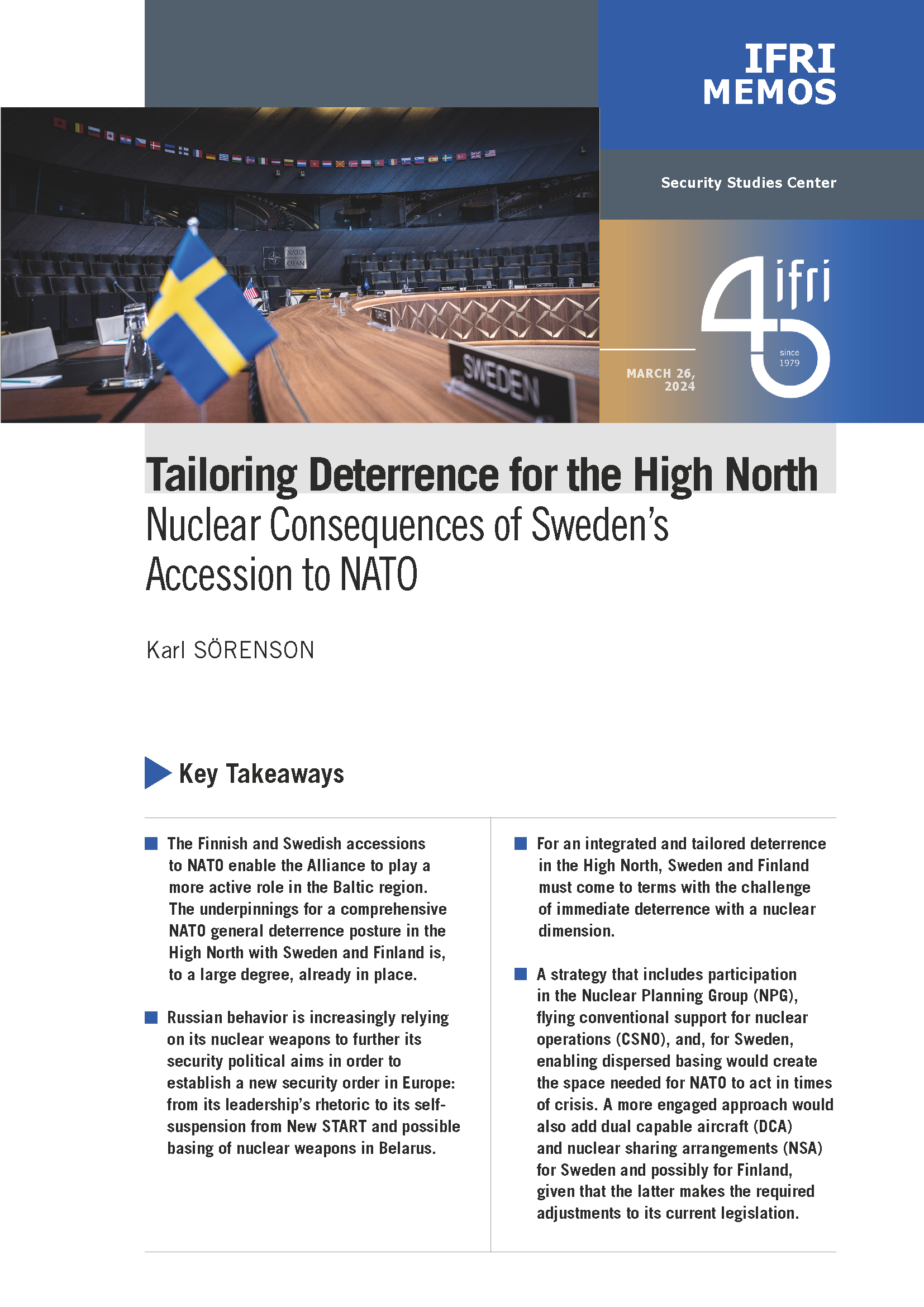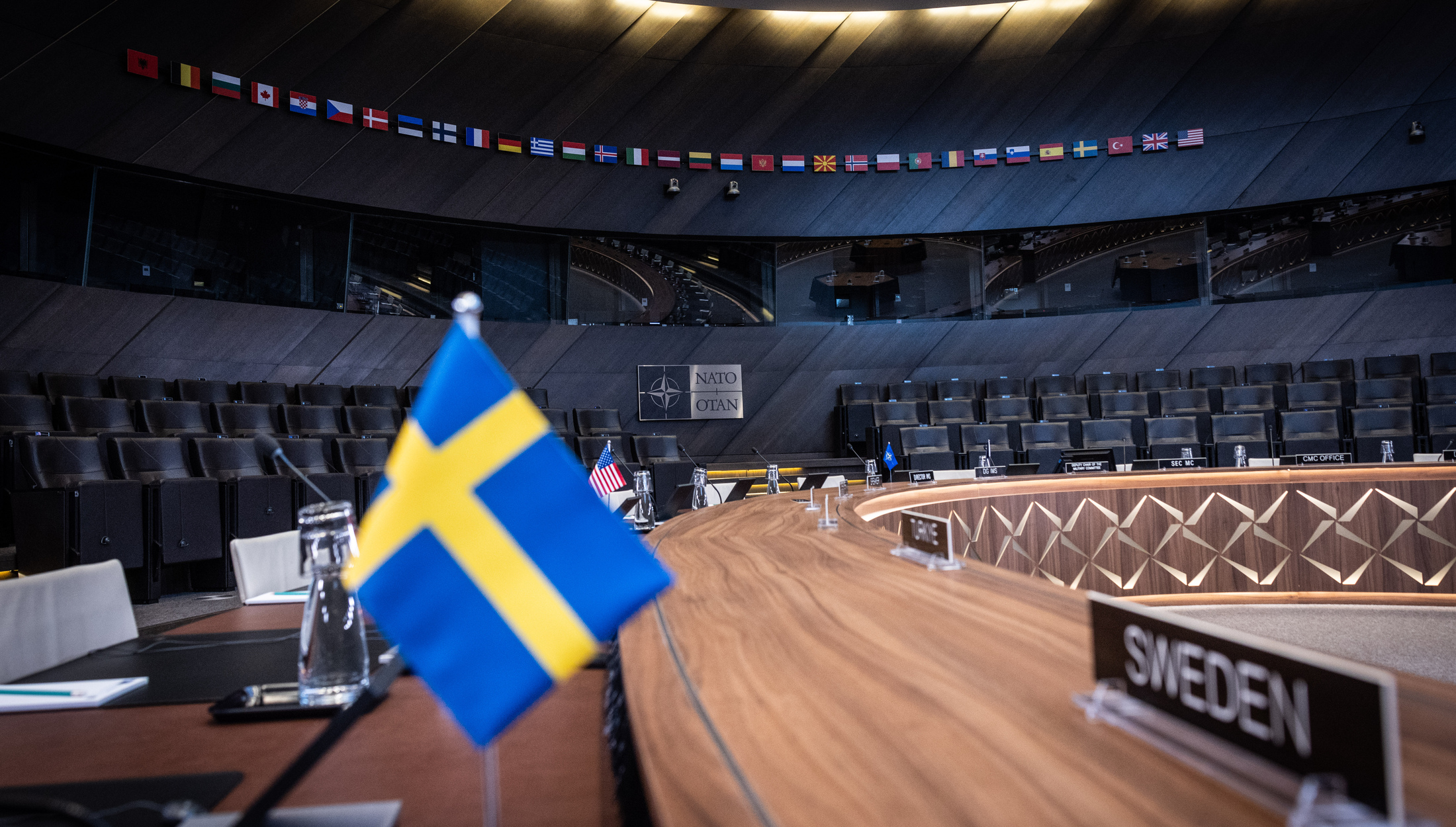Tailoring Deterrence for the High North: Nuclear Consequences of Sweden’s Accession to NATO

The Finnish and Swedish accessions to NATO enable the Alliance to play a more active role in the Baltic region.

The underpinnings for a comprehensive NATO general deterrence posture in the High North with Sweden and Finland are, to a large degree, already in place.
Russian behavior is increasingly relying on its nuclear weapons to further its security political aims in order to establish a new security order in Europe: from its leadership’s rhetoric to its self-suspension from Measures for the Further Reduction and Limitation of Strategic Offensive Arms (New START) and possible basing of nuclear weapons in Belarus.
For an integrated and tailored deterrence in the High North, Sweden and Finland must come to terms with the challenge of immediate deterrence with a nuclear dimension.
A strategy including participation in the Nuclear Planning Group (NPG), flying conventional support for nuclear operations (CSNO) and, for Sweden, enabling dispersed basing, would create the space needed for NATO to act in times of crisis. A more engaged approach would also add dual capable aircraft (DCA) and nuclear sharing arrangements (NSA) for Sweden and possibly for Finland, given that the latter makes the required adjustments to its current legislation.
Download the full analysis
This page contains only a summary of our work. If you would like to have access to all the information from our research on the subject, you can download the full version in PDF format.
Tailoring Deterrence for the High North: Nuclear Consequences of Sweden’s Accession to NATO
Related centers and programs
Discover our other research centers and programsFind out more
Discover all our analysesMain Battle Tank: Obsolescence or Renaissance?
Since February 2022, Russian and Ukrainian forces combined have lost more than 5,000 battle tanks, a much higher volume than all the European armor combined. Spearhead of the Soviet doctrine from which the two belligerents came, tanks were deployed in large numbers from the first day and proved to be a prime target for UAVs that became more numerous and efficient over the months. The large number of UAV strike videos against tanks has also led a certain number of observers to conclude, once again, that armor is obsolete on a modern battlefield. This approach must, however, be nuanced by a deeper study of the losses and their origin, UAVs rarely being the sole origin of the loss itself, often caused by a combination of factors such as mines, artillery or other anti-tank weapons.
Mapping the MilTech War: Eight Lessons from Ukraine’s Battlefield
This report maps out the evolution of key technologies that have emerged or developed in the last 4 years of the war in Ukraine. Its goal is to derive the lessons the North Atlantic Treaty Organization (NATO) could learn to strengthen its defensive capabilities and prepare for modern war, which is large-scale and conventional in nature.
"Iron Swords" A Military Analysis of Israel's War in Gaza
On October 7, 2023, Hamas' attack, dubbed “Al-Aqsa Flood,” caused a major shock and led Israel to launch the longest war in its history. Operation “Iron Swords” was notable for its unprecedented intensity, both in terms of the massive ground forces deployed and the firepower used.
Saudi Arabia’s Nuclear Temptations. Lessons Learned from Regional Instability
Saudi Arabia’s integration in the international arena and regional stability, notably through reducing its dependence on fossil energies, are crucial elements for the success of the Kingdom’s Vision 2030, the Crown Prince’s top priority. However, Mohammed bin Salman’s declarations in 2018 and 2021, indicating that “if Iran develops a nuclear bomb, we will follow suit as soon as possible”, combined with the recent strikes on key Iranian nuclear facilities, do not bode well for the future of the Kingdom, the region and the non-proliferation regime at large.











